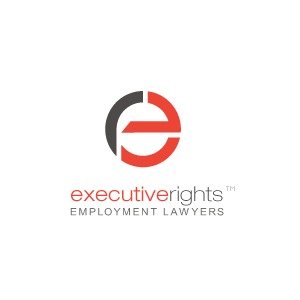Best Job Discrimination Lawyers in Kew
Share your needs with us, get contacted by law firms.
Free. Takes 2 min.
List of the best lawyers in Kew, Australia
About Job Discrimination Law in Kew, Australia
The Australian legislation, including in Kew, protects employees from job discrimination or unfair treatment on the grounds of race, color, nationality, religion, descent or ethnic origin, disability, age, sex, marital or relationship status, pregnancy, family responsibilities, sexual orientation, gender identity. The law encompasses all aspects from hiring, firing, training, benefits, promotions, layoffs, and other employment conditions.
Why You May Need a Lawyer
Understanding and navigating the legal system can be complex. If you believe you've been discriminated against at your workplace, a lawyer could help understand your reasons, advise you, and represent you against your employer. Circumstances needing a lawyer could include being unfairly dismissed, overlooked for promotions, bullied, harassed, or experiencing unfavorable conditions due to your personal characteristics.
Local Laws Overview
The key anti-discrimination laws applicable in Kew are the Equal Opportunity Act 2010 (EO Act) and the federal Fair Work Act 2009. The EO Act prohibits discrimination in employment based on race, disability, sex, religion, political opinion, social origin, age, medical record, criminal record, marital or relationship status, nationality, family responsibilities, among others. The Fair Work Act includes specific protections for workplace rights, and against adverse action and unlawful termination.
Frequently Asked Questions
What forms can employment discrimination take?
Job discrimination can occur in various forms, such as exclusion from recruitment processes, unequal pay, unfavorable task allocation, and unfair treatment. Discrimination can also occur prior to employment, during employment, or after termination.
What to do if I experience discrimination at work?
If you perceive discrimination at your workplace, it's encouraged to first raise the issue within your workplace. If this fails, you might want to lodge a complaint to the Victorian Equal Opportunity and Human Rights Commission or Fair Work Commission.
Can I make a complaint if I am not sure whether I am being discriminated against?
Yes, if you suspect you are being subjected to discrimination but aren't certain, it's crucial to seek legal advice. You can still lodge a complaint, and investigations would determine if any discrimination occurred.
How long do I have to make a complaint?
Complaints regarding discrimination or harassment should be lodged within 6 months of the incident with the Victorian Equal Opportunity and Human Rights Commission. However, if this timeframe lapses, under certain circumstances an extension can be given.
Will I face repercussions for making a complaint?
No, 'victimisation' - treating someone unfavourably because they have made a complaint about discrimination or harassment - is unlawful according to the EO Act.
Additional Resources
For further support, consider reaching out to the Victorian Equal Opportunity and Human Rights Commission or the Fair Work Commission. These bodies can investigate complaints, offer advice, and guide you through the complaint process.
Next Steps
If you believe you are a victim of job discrimination or want to learn about your rights, you should first seek legal counsel. A lawyer knowledgeable in discrimination law can explain your rights, help you understand the laws applicable to your situation, guide you on whether to make an official complaint, and how to file it. Always remember to document all incidents and keep related evidence safe as it can be beneficial for your case.
Lawzana helps you find the best lawyers and law firms in Kew through a curated and pre-screened list of qualified legal professionals. Our platform offers rankings and detailed profiles of attorneys and law firms, allowing you to compare based on practice areas, including Job Discrimination, experience, and client feedback.
Each profile includes a description of the firm's areas of practice, client reviews, team members and partners, year of establishment, spoken languages, office locations, contact information, social media presence, and any published articles or resources. Most firms on our platform speak English and are experienced in both local and international legal matters.
Get a quote from top-rated law firms in Kew, Australia — quickly, securely, and without unnecessary hassle.
Disclaimer:
The information provided on this page is for general informational purposes only and does not constitute legal advice. While we strive to ensure the accuracy and relevance of the content, legal information may change over time, and interpretations of the law can vary. You should always consult with a qualified legal professional for advice specific to your situation.
We disclaim all liability for actions taken or not taken based on the content of this page. If you believe any information is incorrect or outdated, please contact us, and we will review and update it where appropriate.








